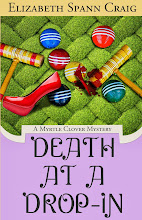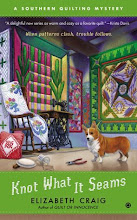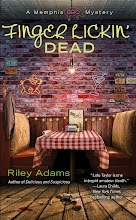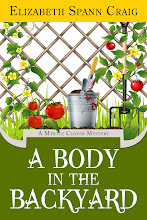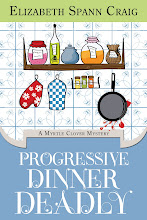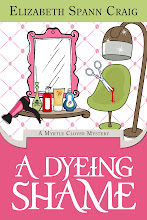![Terry3_thumb[1] Terry3_thumb[1]](//lh5.ggpht.com/_v68WnMKHlKQ/TQQYJBtMztI/AAAAAAAACGc/IgHkziz-74o/Terry3_thumb%5B1%5D_thumb.png?imgmax=800) Here are writing links that I’ve posted to Twitter for the past week.
Here are writing links that I’ve posted to Twitter for the past week.
If you’re looking for a particular topic, just plug in your keyword into the search box at the top left-hand corner of the blog (on the black header right above my blog name…next to the Blogger symbol…the small search window is next to the magnifying glass) and the roundup with your subject will come up. To narrow your search down on the page, do a CTRL+F, type your subject, and hit enter.
7 Tips for Finding the Best “Real-People” Sources (for freelancers and novelists needing primary sources for research): http://dld.bz/Am84
6 tips to keep your online writing persona fresh: http://dld.bz/A2Nj @ZiggyKinsella
Prioritizing Your To Do List – Pick the Most Efficient Target: http://dld.bz/Am8h
5 tips in responding to criticism: http://dld.bz/Am7U
Printing Your Book: Should You Go with Print-on-Demand? http://dld.bz/Am7N
Living With Nice Writer Syndrome: http://dld.bz/Am7v
5 Ways to Make Your Blog Stand Out From the Crowd: http://dld.bz/Am7u
Writing enigmatic characters: http://dld.bz/A2Nx
Genre sales report--Women's Lit (from a publishing insider): http://dld.bz/Am7q
How to Begin a Story: http://dld.bz/Am7j
The secret ingredient to a strong author platform: http://dld.bz/Am6K
Myst. Lov. Kitchen: Peppermint Bark! The bark that's better when you bite! http://bit.ly/gDEb63 @CleoCoyle
Create a Social Media Optimized Email Signature: http://dld.bz/Ae2N
How to learn from critique partners: http://dld.bz/Ae2d
Writing mantras: http://dld.bz/AezC @bluemaven
Tips on writing for children (video): http://dld.bz/AezK @thecreativepenn
Nurturing the writing life: http://dld.bz/Aez5
26 Tips for Enhancing Your Facebook Page: http://dld.bz/AeyR
Writing authentic dialogue: http://dld.bz/Aey6
6 Questions NOT to ask a Writer: http://dld.bz/AexW
A Writing Lesson about Pettiness from Poe: http://dld.bz/Aex7
Don't be afraid to dream big: http://dld.bz/Aq5x
8 Incredibly Simple Ways to Get More People to Read Your Content: http://dld.bz/Aex4
Things Every Story Needs to do: http://dld.bz/Aexp
Interesting interview with Writer's Digest editor Jane Friedman on writers and social media: http://dld.bz/Aq44
Lazy writing: http://dld.bz/Aexg
Best Articles This Week for Writers 12/10/2010: http://dld.bz/Aq5m @4kidlit
Put Resilience In Your Writers Toolbox: http://dld.bz/AewR
Observations on sci-fi sales from a publishing insider: http://dld.bz/Aew9
The Uses of Repetition in Writing...and in Life: http://dld.bz/Aewx
Nailing Your Teen Voice: http://dld.bz/Aewf
The Ultimate Guide to Novel Queries: http://dld.bz/AevJ
Gift ideas for the ten major species of science fiction fan: http://dld.bz/AevE
9 Practical Ways to Start Attracting an Audience to Your New Social Media Account: http://dld.bz/Aev3
Tips For a Healthy 2011 Reading Diet for the Crime Fiction Lover: http://dld.bz/Am55 @mkinberg
Tips for creating inner conflict for your characters: http://dld.bz/Aevk
Getting Primal & Staying Simple: http://dld.bz/9Vh5
Myst. Lov. Kitchen: Mystery Cookies: Getting in on the fun! http://bit.ly/gcCXbx @CleoCoyle
The 6 Degrees of Show vs. Tell, Rated by Quality: http://dld.bz/9Vhz @victoriamixon
For the stressed-out writer: The Minimalist’s Guide to Inner Peace: http://dld.bz/9Vcp
Making the most of Amazon: http://dld.bz/97Re
Tips for handling harsh criticism: http://dld.bz/9UT7
On using your Bookscan for good, not evil: http://dld.bz/AgD7
The Case of the Misplaced Modifier: http://dld.bz/9UTb
Amazon Gives Authors Free Access to Nielsen BookScan’s Sales Data: http://dld.bz/AgCS
5 Ways to Effectively Manage Your Online Reputation: http://dld.bz/9UST
An agent on common problems he sees in query letters that fail: http://dld.bz/9USF
Squeezing writing into an overcrowded day (10 minutes is better than nothing): http://dld.bz/AfN7
4 Scientific Tips that Help You Get More Blog Comments: http://dld.bz/9USb
Getting Google to notice your ebook: http://dld.bz/9URY
Write what you know—what you know you have to write: http://dld.bz/AeRz
As One Writer Sees It: Top Ten Reasons to Publish with a Small Press: http://dld.bz/9UR3 @KarenGowen
Authors on Twitter: The Danger of Being Too Clique-y: http://dld.bz/9URd
Scholastic Lists Children's Books Trends for 2010: http://dld.bz/9UQG
Blind spots--a writer's fatal flaw: http://dld.bz/9UQs
Lost your inspiration? An exhaustive link roundup to help you get your mojo back: http://dld.bz/9UPQ @4kidlit
Winter storm writing: http://dld.bz/9UPD
The best time of day to publish blog posts (and Facebook updates, etc.): http://dld.bz/97R3
Making the most of Amazon: http://dld.bz/97Re
Seasons in Fantasy: http://dld.bz/97QZ
Monstrous Post on Monsters: http://dld.bz/97Qm
Myst. Lov. Kitchen: Avery Aames's Parmesan Gelato http://bit.ly/h2A9RQ @CleoCoyle
Genre sales--Mystery/thriller: http://dld.bz/97Qc
Sequence Outlining: http://dld.bz/97PQ
13 Steps for Establishing a Popular Writing Blog: http://dld.bz/97PF
Writers on Writing: On Writing by Stephen King: http://dld.bz/97P9
2010 Writing Goals: Your Race to the Finish Line: http://dld.bz/97Pr
How to Write a Novel: The Snowflake Method: http://dld.bz/97NW @bubblecow
Showing off the best material in your blog archive: http://dld.bz/97NM
Ten Things Writers Say, and What They Really Mean: http://dld.bz/97Nu
Don't show your writing to your mother or your lover: http://dld.bz/9WdX
In Praise of Long Books: http://dld.bz/97Nq
Playing to your writing strengths: http://dld.bz/9VEh @jammer0501
Amazon Reviews Hijacked by Paid Hacks? http://dld.bz/97MW
Sorry, Your Services are no Longer Required: Eliminating Characters-- http://dld.bz/9UNc
Thriller writing--the dos, don'ts, and don't-even-think-about-its: http://dld.bz/97MC
Ritual, Routine & Habit in Storytelling: http://dld.bz/9qCs
7 Ways to Get Your Book Discovered on Amazon: http://dld.bz/9qCa
Four Professional Editing Techniques that Boost Blog Post Value: http://dld.bz/9qBW
Tips for writing strong characters: http://dld.bz/9qBK
Plot development basics: http://dld.bz/9qBt
7 Ways to Help Writers Survive the Holidays: http://dld.bz/9qAJ
The 15 most-read Poetry Foundation & Poetry magazine articles of 2010: http://dld.bz/9pWB
Reflections On Two Years Of Blogging: Lessons Learned: http://dld.bz/9pW2 @thecreativepenn
Why You Should Write Without Excuses: http://dld.bz/9pVV
What we talk about [to ourselves] when we talk about writing: http://dld.bz/9pWY
10 graphic novels that make great gifts (for people who don't read comics): http://dld.bz/9pWZ
Myst. Lov. Kitchen: Tortellini Pasta Salad http://bit.ly/gdFzgh @CleoCoyle
Creating a Book Readers Can’t Put Down: http://dld.bz/9pVu
Grabbing your reader in the first 10 minutes: http://dld.bz/9pVk
Tips for crafting strong sentences: http://dld.bz/9pUR
Your Writing Future–Are You Investing or Gambling? http://dld.bz/9pU4
Anatomy of a Successful Press Release for Book Promotion: http://dld.bz/9pTZ
3 Signs Your Story’s Characters Are Too Perfect: http://dld.bz/9pTx
6 ways to profit from writing a nonfiction book: http://dld.bz/9pTs
What agents don't like about some writers' blogs: http://dld.bz/9pTf
10 Reasons Roundup Posts Rock: http://dld.bz/9pTc
6 Ways to Persevere: http://dld.bz/9pSZ
Tips on plotting: http://dld.bz/9pSV
A publishing insider's insights on the fantasy genre's sales and outlook: http://dld.bz/9pSx
Get Your Eagle Eye On: 10 Tips for Proofreading Your Own Work: http://dld.bz/9mTe
5 ways to market copywriting services: http://dld.bz/9mSU
The reasons behind literary reviews http://dld.bz/9mS9 and why reviews are worth expressing: http://dld.bz/9mSD
The new cover for my June 2011 release, "Finger Lickin' Dead!" :) : http://dld.bz/9Gaf
Democratization or Disinformation? A warning about print-on-demand publishing services: http://dld.bz/9mSt @victoriastrauss
How To Create A Facebook Fan Page For Your Book Or Author Brand (video): http://dld.bz/9mRZ
Semicolons and commas: http://dld.bz/9mRP
5 great blog posts for writers: http://dld.bz/9mRF
Tips for freelancers on keeping their writing fresh: http://dld.bz/9mRD
Myst. Lov. Kitchen: Crime Writers' Cookie Swap and Congrats to Krista Davis! http://bit.ly/ebPk8I @CleoCoyle
The quixotic pull of your future novel: http://dld.bz/8Y7x
Inspiring Readers with Ordinary Characters: http://dld.bz/8Y7f
Query trends: http://dld.bz/8Y6V
What one writer has learned from her manuscript being on submission: http://dld.bz/8Y6B
4 Articles on Self-Publishing: http://dld.bz/8Y6h
Formatting Your Manuscript: http://dld.bz/8Y6e
Publishing for the Uninhibited: Adventures in Kindle Land: http://dld.bz/8Y6d
Keeping track of our story: http://dld.bz/8Y5M
Why it's good to write, even when you're writing poorly: http://dld.bz/998N
5 Tips for Productively Editing Your Writing (Huff Post): http://dld.bz/8Y52
Excel For Authors – Agent and Editor Research: http://dld.bz/8Y5u
5 Things Writers Should Do BEFORE Release Day: http://dld.bz/8Y5q
Putting Feelers Out Before Leaving Your Agent: http://dld.bz/8Y5e
4 Ways to Find a Critique Partner: http://dld.bz/8Y5b
Feeding Your Spirit to feed Your Writing: http://dld.bz/8Y4y
Suffering from Writers Block? 7 Tips to Get You Back on Track: http://dld.bz/8Y3U
A tip for making your characters stronger: http://dld.bz/8Y3D
An industry insider's thoughts on the mash-up genre: http://dld.bz/8NXY
Writing lessons from "The Bachelor": http://dld.bz/8NXx
Bigger Isn’t Always Better: Independent Publishing in the Netherlands: http://dld.bz/8NqA
Awesomely Effective Email Communication: http://dld.bz/8Nqv
Getting your manuscript at a discount: http://dld.bz/8NpV
Myst. Lov. Kitchen: Chocolate Insanity http://bit.ly/enO8da @CleoCoyle
Types of book and chapter openings: http://dld.bz/8NpF
Providing Emotional Clarity: http://dld.bz/8NpA
Has Project Gutenberg Failed Copyright Law? http://dld.bz/8Np5
The Importance Of Tracking World Rights: http://dld.bz/8Npt
Royalty Rates: http://dld.bz/8Nne
Adding a Facebook “Like” Button to Blog Posts: http://dld.bz/8Nmf
Turning Expectation into Anticipation: http://dld.bz/8Nkq @camillelaguire
Mystery writer's guide to forensic science--Poisons, VIII: http://dld.bz/8NjP @clarissadraper
7 tips for author websites: http://dld.bz/8Fp6
Achieving a state of flow: http://dld.bz/8Fpg
Tips from an Editor (Now an Agent) Who Knows: http://dld.bz/8Fn7
The term 'high concept': http://dld.bz/8D24
Writing without electricity: http://dld.bz/8D2f
Myst. Lov. Kitchen: Emily's Cake http://bit.ly/fBMMGB @CleoCoyle
Accentuate the Positive: Hope and the Aspiring Writer: http://dld.bz/8Dvg
Great characters are like peanut butter: http://dld.bz/8Du9
10 Checkpoints for a Scene: http://dld.bz/8Duw
The Most Dramatic Publishing Event of 2010? Easy, the Introduction of Agency Pricing for E-books: http://dld.bz/8Dub
Mistakes to avoid when querying agents: http://dld.bz/8DtR
2 sides of marketing: what makes people buy your books: http://dld.bz/8DtJ
The use of cliffhangers in crime fiction: http://dld.bz/9qvT @mkinberg
 Merry Christmas to all who celebrate and a Happy 2011 to all!
Merry Christmas to all who celebrate and a Happy 2011 to all! ![Terry3_thumb[1] Terry3_thumb[1]](http://lh6.ggpht.com/_v68WnMKHlKQ/TRSd_-waw7I/AAAAAAAACLg/-vSwnKOtLLs/Terry3_thumb%5B1%5D_thumb.png?imgmax=800)









![Terry3_thumb[1] Terry3_thumb[1]](http://lh5.ggpht.com/_v68WnMKHlKQ/TQ1oRWvKumI/AAAAAAAACII/nC0JwZVzdpY/Terry3_thumb%5B1%5D_thumb.png?imgmax=800)
 Margot Kinberg had a nice post yesterday
Margot Kinberg had a nice post yesterday





![Terry3_thumb[1] Terry3_thumb[1]](http://lh5.ggpht.com/_v68WnMKHlKQ/TQQYJBtMztI/AAAAAAAACGc/IgHkziz-74o/Terry3_thumb%5B1%5D_thumb.png?imgmax=800)








